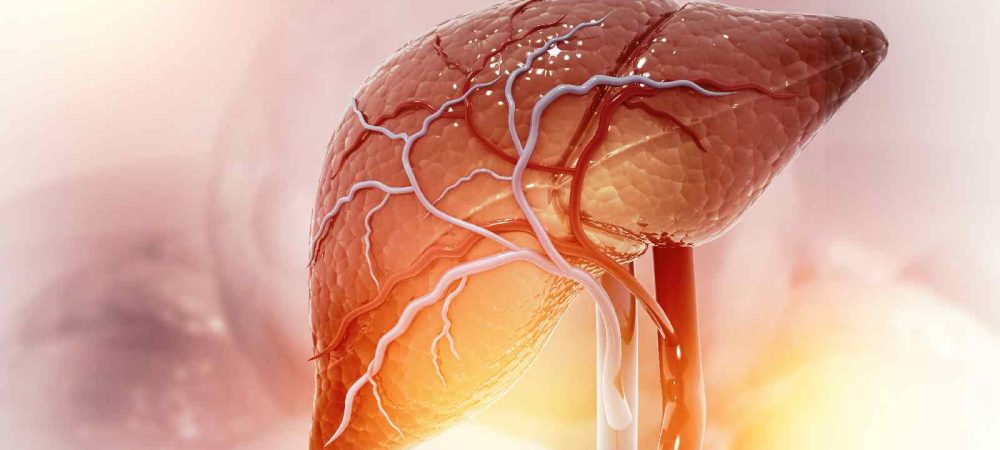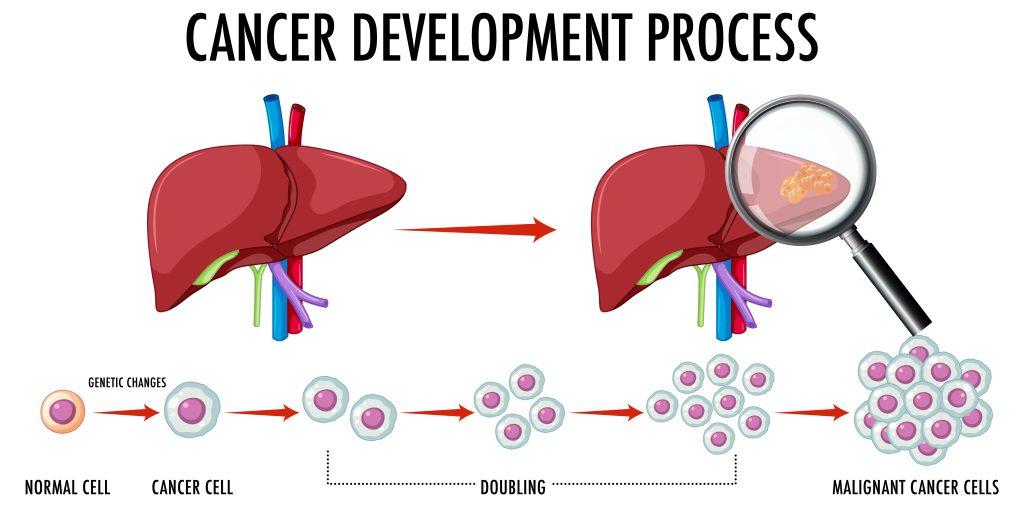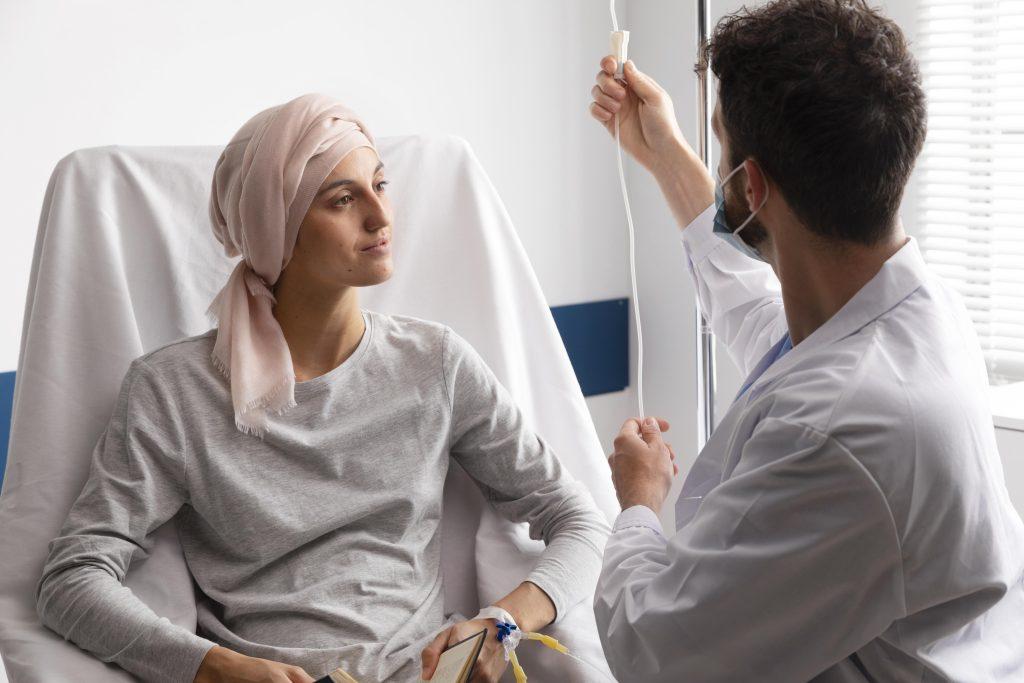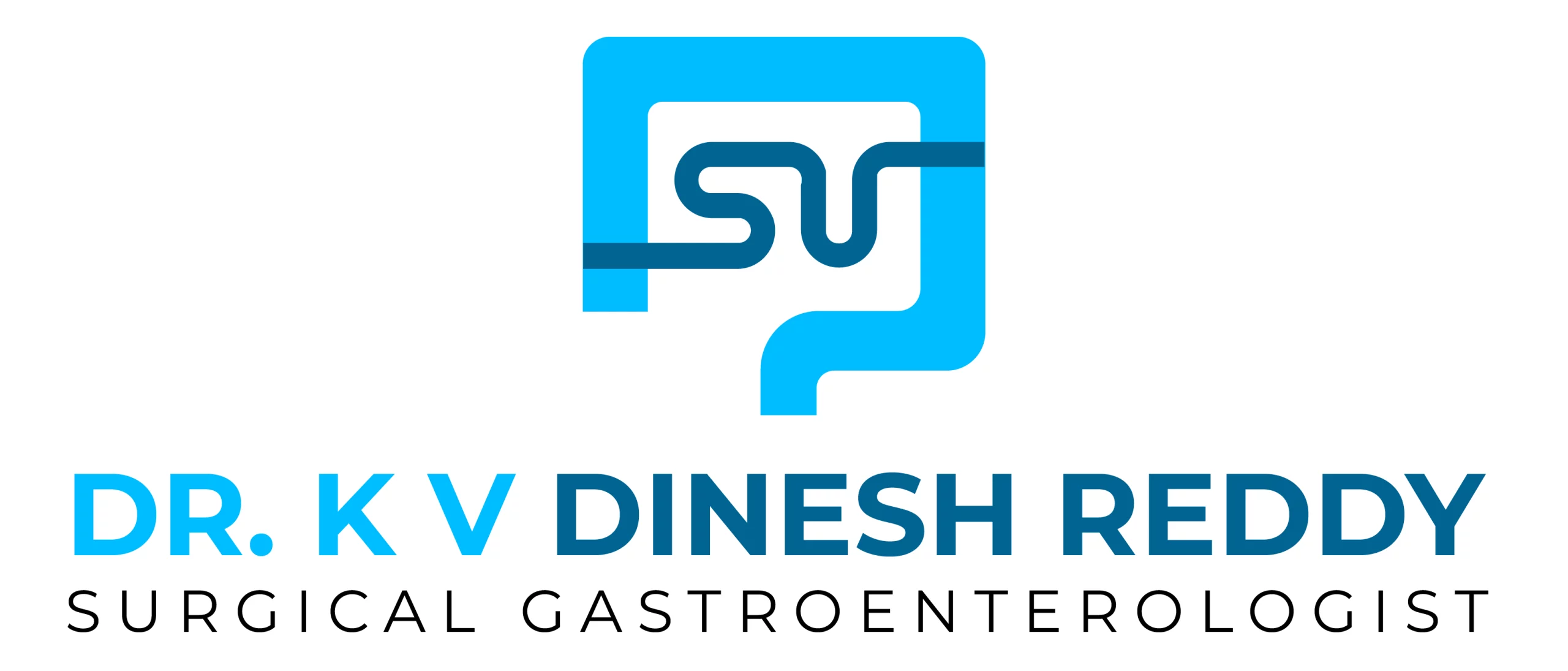Liver Cancer Treatment in Hyderabad

Liver cancer is a type of cancer that develops in the liver, which is the largest internal organ in your body. Like all other cancers, it happens when cells in the liver grow out of control. Sometimes, the cancer starts in the liver itself, but it can also spread from other parts of your body.
The liver has many vital functions, including filtering waste from your blood, storing nutrients, and helping heal. When cancer develops in the liver, it disrupts these crucial functions and can lead to various complications and health issues.
Therefore, timely detection and appropriate treatment are crucial for managing the condition effectively. Dr. K V Dinesh Reddy is one of the renowned and best surgical doctors in Hyderabad for the treatment of liver cancer.
Types of Liver Cancer

1. Primary liver cancer
This develops in the main type of liver cell (hepatocyte) and is commonly known as hepatocellular carcinoma (HCC) or cholangiocarcinoma.
2. Secondary liver cancer
If cancer originates in another area of your body and spreads to the liver, it is also known as secondary or metastatic liver cancer.

Signs and Symptoms of Liver Cancer

The doctor uses a colonoscope to examine the colon and rectum, remove polyps, and perform biopsies. It is a highly accurate procedure.
Unfortunately, the condition is hard to detect in its early stage. Whether it is primary or secondary type, the symptoms are usually similar. These include:
- Upper abdominal pain or discomfort on the right side
- A hard lump or swelling below the rib cage
- Swollen or bloated abdomen
- Pain in the neck or near the right shoulder blade
- Jaundice
- Easy bruising or bleeding
- Feeling unusually tired or weak
- Nausea and vomiting
- Loss of appetite or feeling full quickly after eating a small meal
- Rapid weight loss
- Pale or clay-colored stools and dark urine
- Fever
Causes of Liver Cancer
The exact cause is not fully understood. However, research studies suggest that certain conditions, such as chronic infection with specific hepatitis viruses, can contribute to its development. In general, cancer occurs when there are changes or mutations in the DNA of cells, causing them to grow abnormally and form a tumour.
While the specific reasons for these DNA mutations in liver cells are not yet known, several risk factors have been identified that can increase the likelihood of developing this disease.
Risk Factors of Liver Cancer

Certain behaviors and conditions can increase the risk. These include:
- Obesity or being overweight
- Chronic hepatitis infection
- Smoking cigarettes
- Excessive alcohol consumption
- Cirrhosis, permanently damaged liver cells

- Diabetes.
- Hemochromatosis, a condition where the body accumulates excessive iron.
- Nonalcoholic fatty liver disease (NAFLD), a condition characterized by excess fat in the liver unrelated to alcohol consumption.
- Consumption of foods contaminated with aflatoxin, a fungus that can grow on improperly stored grains and nuts.
Understanding the risk factors can help you make informed decisions regarding prevention and early detection. If you know you are at risk of having liver cancer, consult Dr. K V Dinesh Reddy to detect the disease at its early stage and get the best treatment for liver cancer in Hyderabad.

Diagnosis of Liver Cancer

Some tests that are used for the diagnosis include:
- Liver function tests:
These blood tests assess the overall functioning of the liver by measuring certain enzymes, proteins, and bilirubin levels.
- Imaging tests:
- Techniques such as ultrasound, computed tomography (CT) scan, and magnetic resonance imaging (MRI) are advised to get detailed images of the liver. This helps to identify the type and stage or extent of the disease.
- Alpha-fetoprotein (AFP) blood test:
AFP is a protein that can be elevated in individuals with liver cancer. Periodic AFP blood tests may be recommended to monitor for any significant changes in levels.
- Liver biopsy:
In some cases, a small sample of liver tissue may be taken through a biopsy procedure to analyze it for signs of cancerous cells.
Treatment of Liver Cancer in Hyderabad

The following are various treatment approaches:
Surgery
Surgical interventions are generally considered the most effective treatment for liver cancer if the tumor is localized and the patient is in good overall health. The surgical options include:
- Partial Hepatectomy:
This involves removing the part of the liver containing the tumor along with a small portion of healthy liver tissue.
- Liver Transplant:
In cases where the tumor is limited to the liver and the patient meets specific criteria, a liver transplant may be considered.


Localized treatments
These treatments target cancer cells or the area surrounding them. They include
- Radiofrequency ablation (heating cancer cells)
- Cryoablation (freezing cancer cells)
- Alcohol injection into the tumor
- Chemotherapy drug injection into the liver
Radiation therapy
This treatment utilizes high-energy sources such as X-rays or protons to destroy cancer cells and shrink tumors. It can be an option when other treatments are not feasible or haven’t been effective. It can also be as an adjuvant therapy after surgery.
Targeted drug therapy
Targeted drugs focus on specific abnormalities within cancer cells, blocking them and leading to cancer cell death. Various targeted therapies are available for advanced liver cancer, and genetic testing may determine their suitability for a particular patient.
Immunotherapy
This treatment uses drugs that enhance the body’s immune system to recognize and attack cancer cells. Immunotherapy is generally reserved for advanced liver cancer cases.
Chemotherapy
This method utilizes drugs to kill rapidly growing cells, including cancer cells. It can be administered intravenously or in pill form and is sometimes employed for advanced liver cancer.
Palliative care
This focuses on alleviating pain and other symptoms associated with serious diseases. It complements other treatments and can be used alongside surgery, chemotherapy, or radiation therapy to improve quality of life.
Best Doctor for Liver Cancer Treatment in Hyderabad

Dr. K V Dinesh Reddy
MBBS; MS (Gen.Surg); DNB (Surg.Gastro)
It is always advisable to consult with an experienced doctor for personalized advice and an accurate diagnosis. Dr. K V Dinesh Reddy is known for his expertise in liver cancer treatment in Hyderabad. With a proven track record of performing multiple liver cancer surgeries, he specializes in liver disease management and gastrointestinal oncological surgeries.
You can trust our expertise and dedication to providing exceptional care for your colorectal cancer treatment.
Frequently Asked Questions
Here are answers to some of the questions you might have about Liver Cancer
Liver cancer can sometimes be cured completely, especially if it’s detected early and treated effectively. However, the chances of complete cure depend on factors like the stage of cancer, its size, and how well the person responds to treatment. Advanced cases may be more challenging to cure, but medical advances and therapies offer hope for many patients. Regular check-ups, healthy lifestyle choices, and prompt medical attention increase the chances of successful treatment and long-term remission.
Surgery is one treatment option for liver cancer, but it’s not the only one. The treatment plan depends on factors like the cancer’s size, stage, and the person’s overall health. Other options include targeted therapies, radiation, and ablation (using heat or cold to destroy cancer cells). Doctors might also recommend chemotherapy or immunotherapy. They’ll consider all options and tailor the treatment to what’s best for the individual’s specific situation.
To lower your risk of liver cancer, you can take several steps. First, maintain a healthy weight through balanced eating and regular exercise. Limit alcohol intake, as excessive drinking can harm your liver. Protect yourself from hepatitis by getting vaccinated and practicing safe behaviors. Avoid using illegal drugs and always use protection during intimate activities. Regular check-ups and a healthy lifestyle can go a long way in reducing your chances of developing liver cancer.
Yes, there can be long-term side effects from liver cancer treatment. These effects vary based on the type of treatment you receive. Surgery might cause pain or changes in digestion. Chemotherapy and radiation can lead to fatigue, nausea, or skin issues. Targeted therapies might impact blood pressure or cause skin problems. Your medical team will explain potential side effects and how to manage them. Regular check-ups help monitor and address any long-term effects to ensure your well-being.
Regular screenings for liver cancer are important because they can catch the disease early when it’s easier to treat. Early detection increases the chances of successful treatment and cure. Screenings help find any signs of liver issues before they become serious. High-risk individuals, like those with liver diseases or hepatitis, benefit especially from regular screenings. Remember, early action based on screenings can make a big difference in your health and well-being.


